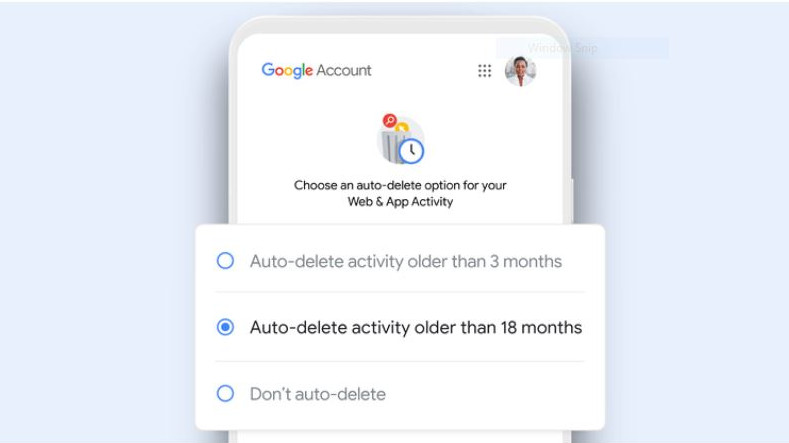Google reveals major privacy shake-up, will auto-delete user data
Auto-delete controls will be turned on by default for all new users

Google has announced a significant overhaul to its privacy policies surrounding the handling and retention of user data.
According to a new blog post, Google will now automatically delete users’ search information, location data and voice commands after 18 months has elapsed since capture.
YouTube activity, meanwhile, will be kept on file for 36 months by default, which Google says will ensure viewers are served the most relevant content.
- Check out our list of the best VPN apps for Android out there
- Here's our list of the best secure messaging apps around
- We've built a list of the best password managers available
“As we design our products, we focus on three important principles: keeping your information safe, treating it responsibly, and putting you in control,” wrote Sundar Pichai, Google and Alphabet CEO. “Today, we are announcing privacy improvements to help do that.”
The company’s auto-delete controls have been in place since last year, but will now be turned on by default for new users. Existing Google Account holders, though, will need to manually activate the auto-delete function from with the Activity Controls panel.

Google privacy update
Google’s new data retention policies are part of a wider campaign to deliver improved user privacy and data security. In recent months, the company has taken steps to bolster the security of popular video conferencing service Google Meet, protect users against coronavirus-related scams and mitigate the privacy risk posed by facial recognition technology.
“We believe that products should keep your information for only as long as it’s useful and helpful to you - whether that’s being able to find your favorite destinations in Maps or getting recommendations for what to watch on YouTube...We continue to challenge ourselves to do more with less.” said Pichai.
Are you a pro? Subscribe to our newsletter
Sign up to the TechRadar Pro newsletter to get all the top news, opinion, features and guidance your business needs to succeed!
The firm also took the opportunity to unveil a host of smaller changes designed to make it easier for users to access privacy controls and improve account security.
Soon, search queries such as ‘Is my Google Accounts secure?’ or ‘Google Privacy Checkup’ will return a personalized widget that allows users to make quick tweaks to their account controls.
Accessing Incognito mode within Google’s most popular apps - including YouTube, Search and Maps - will also be much easier. To enter private browsing, users need only press and hold on their profile picture.
Within the coming weeks, Google’s Password Checkup tool will also be integrated into the Security Checkup service, which notifies users of chinks in their security armor. The addition will allow account holders to check whether any of their login credentials have been compromised and safeguard against potential credential-stuffing attacks.
- Here's our list of the best VPN services on the market

Joel Khalili is the News and Features Editor at TechRadar Pro, covering cybersecurity, data privacy, cloud, AI, blockchain, internet infrastructure, 5G, data storage and computing. He's responsible for curating our news content, as well as commissioning and producing features on the technologies that are transforming the way the world does business.